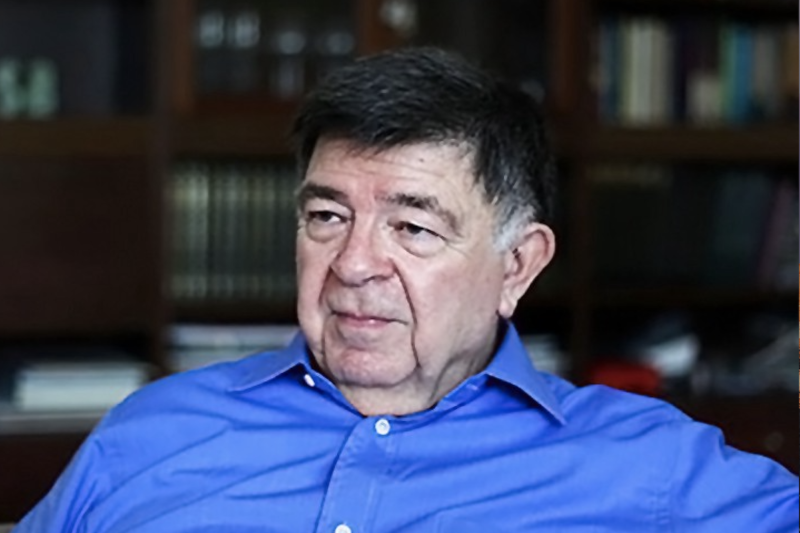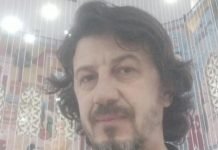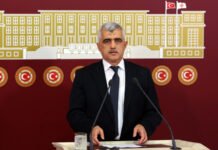The condition of Yusuf Halis Çetin, who was diagnosed with autism at the age of three, has significantly worsened since his father was imprisoned a year ago, with his mother saying her husband’s incarceration has negatively affected her son’s health and aggravated his disorder.
Born on August 20, 2014, Yusuf was diagnosed with autism when he was three and is now almost totally disabled by autism with his need for special care now amounting to more than 90 percent. His parents were detained together one year ago as part of a post-coup purge, with the mother having been released and the father still in İstanbul’s notorious Silivri Prison.
According to Zehra Bilge Çetin, Yusuf’s mother, who spoke to the Bold Medya news website, the separation from his father affected Yusuf’s health negatively, worsening his disorder. His temper tantrums and other behavioral problems increased. After the trauma caused by the separation, he lost some of the skills he had acquired, toileting being one of them, she said, a skill that had taken Yusuf a year to master. Yusuf cannot speak or eat on his own.
Yusuf’s father Özer, 34, was arrested on August 26, 2019 because he had worked as a teacher at a Gülen movement-affiliated study center until 2014, an act that is tantamount to membership in an armed terrorist organization in the eyes of Turkish President Recep Tayyip Erdogan.
Following what is widely known as the December 17 and 25, 2013 corruption investigations that implicated him, four of his ministers and his close associates, President Erdoğan designated the movement as a terrorist organization and began to crack down on members of the movement.
The crackdown gained momentum after a failed putsch on July 15, 2016 that Erdoğan accused Gülen of masterminding. Gülen denies any involvement in the coup attempt or any terrorist activity.
As part of the post-coup purge, the Turkish government dismissed more than 150,000 civil servants from state jobs and investigated almost 600,000 people, detaining or arresting half of them on trumped-up terrorism-related charges.
Like tens of thousands of fellow victims of the post-coup purge, Çetin is accused of membership in a terrorist organization. He is still in pre-trial detention, with his first hearing scheduled for October 8, 14 months after his initial arrest.
According to the latest report of an Istanbul hospital dated August 18, 2020, Yusuf’s special needs are now almost total. The Turkish Penal Code allows for a postponement of execution of a sentence if a first degree relative of an arrestee has a severe disability. However, the authorities refuse to apply this law to political prisoners.
Yusuf, who suffers from both autism and epilepsy, receives three special therapies, and according to reports by the centers that provide these therapies, his father should participate in the sessions.
“The training centers Yusuf attends said in their reports that his father’s participation in the therapy sessions is very important and that his participation would be to Yusuf’s advantage. His speech therapist, physical therapist and another institution offering special training all said the same thing,” Zehra emphasized.
“The court where my husband will be tried was determined one year after his arrest, as late as July 29. I will present these reports to the court,” she added.
“While it is very difficult to care for and raise even a normal child, it is all the more difficult for a mother to take care of a child with autism,” Zehra said. She is a former teacher who was dismissed from her job by an emergency decree-law promulgated by the government during a state of emergency declared after the coup attempt.
“It is not an easy matter to provide for the therapies, special medicines, food supplements and training materials that my son needs,” she stated.
“When it comes to prison visits, they are extremely difficult with Yusuf. I feel obliged to take him with me because he becomes very happy when he sees his father.”
Yet, overcrowding, excessive noise, having to wait in line and body searches at the prison visits overcharge Yusuf’s brain, which, as a child with autism, lacks a filter, triggering angry outbursts and meltdowns. During a visit, she said, Yusuf got angry when an iron door did not open and had a meltdown, hitting his head against the iron bars and splitting it open. “He got five sutures for it.”
“We leave home early in the morning. He cries until he sees his father in the prison. Yusuf’s autism is not recognizable at first glance; hence, people don’t understand why he cries so hard. When he sees his father he becomes very happy. Yusuf also has problems sleeping. Sometimes he can’t sleep for two days in a row. But whenever we visit his father he falls asleep during the visit. Strangely, he can sleep in such an overcrowded setting with so much noise and light,” she said.
According to Zehra, psychologists attribute Yusuf’s falling asleep after seeing his father to his relaxation emanating from emotional discharge.



![[Interview] Beaten, abused and threatened with harm to his family, Turkish teacher recounts harrowing police interrogation amid post-coup purge](https://stockholmcf.org/wp-content/uploads/2025/05/tim-hufner-3R_GnBNRVI0-unsplash-218x150.jpg)











